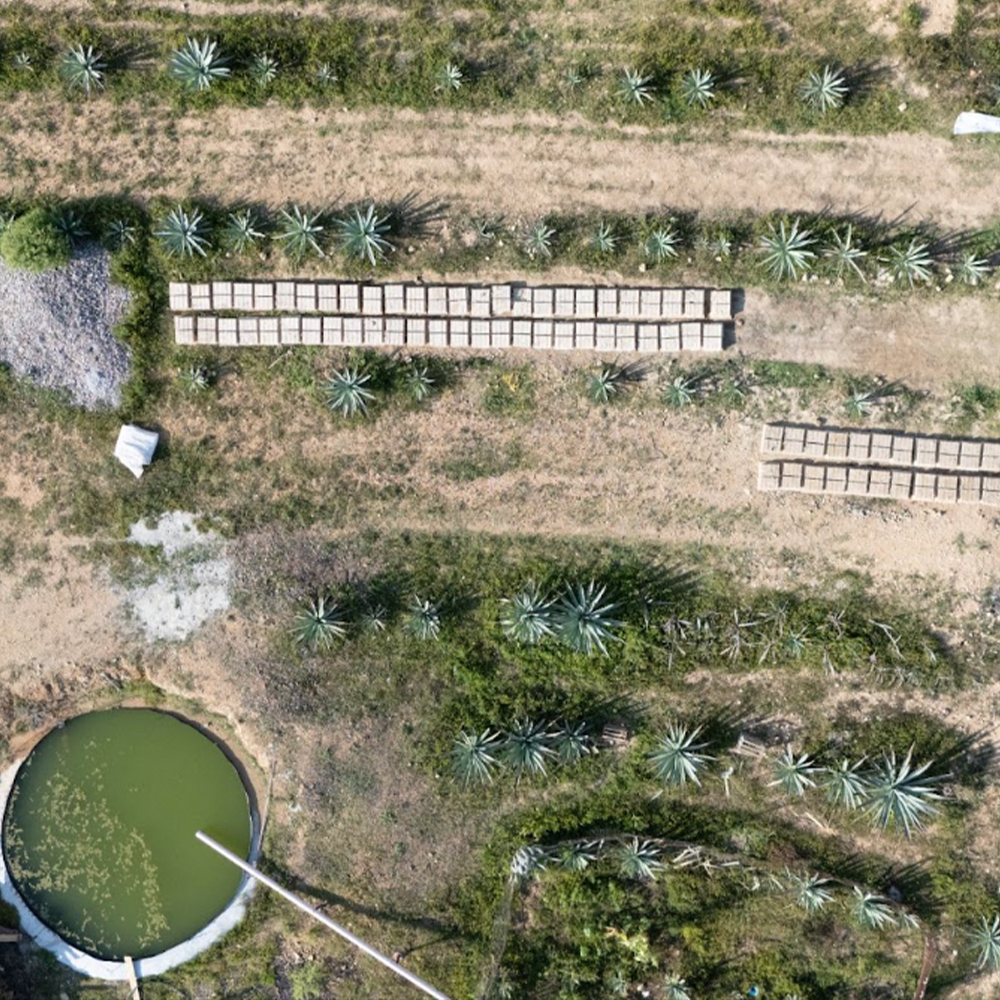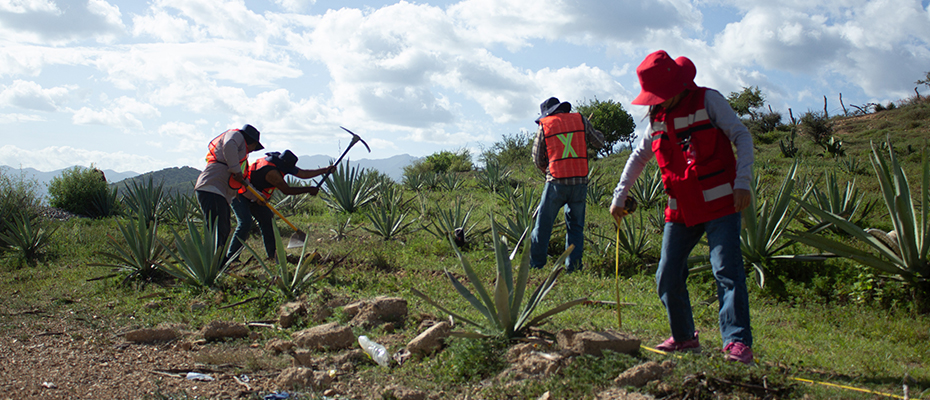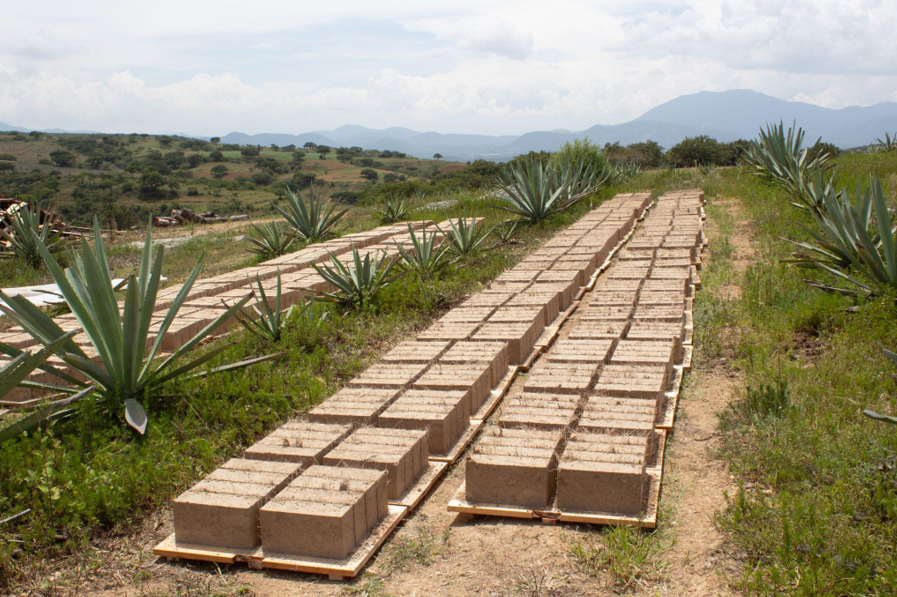COAA and House of Tequila: Actions to Protect the Planet

Sustainable construction in Mexico faces a dual challenge: reducing emissions while generating solutions that truly transform communities. In Las Milpas, Oaxaca, COAA took a historic step toward that goal in collaboration with Del Maguey Single Village, House of Tequila – Pernod Ricard, and the Luis family from Las Milpas. Together, they showed that it is possible to turn mezcal production waste into regenerative materials with direct social impact.
From Waste to Resource: The Origin of a Territorial Transformation
Traditional mezcal production generates large quantities of vinasse and bagasse that have long been discarded without use. In Las Milpas, this alliance redefined that equation—transforming 2,860 liters of vinasse and 525 kilograms of bagasse into 2,552 Agablocks: a high-performance regenerative material that eliminates waste and turns it into building solutions for the community itself.
What makes this process remarkable is that it was carried out entirely on site, using inputs collected within an 8 km radius and under a community acceptance program that ensures 100% territorial traceability. This methodology guarantees that every stage of the project respects local dynamics and strengthens the autonomy of the people involved.
Technical Innovation in Service of Community Resilience
The resulting Agablocks are not just an ecological alternative—they are four times more resistant to earthquakes than traditional earthen materials and completely cement-free, significantly reducing their carbon footprint. This combination of structural strength and low environmental impact makes each block a tangible action for regenerating the land and building a safer future. By being produced locally using regional resources, Agablocks also eliminate the need to transport materials from elsewhere, strengthening the local economy and minimizing emissions linked to construction logistics. This circular approach closes the mezcal production cycle and establishes a model that can be replicated in other producing communities.

Verified Climate Impact: Numbers that Matter
The project not only reduces waste—it also prevents emissions. Altogether, the 2,552 Agablocks led to a reduction of 1,670.79 kg of CO₂ equivalent, an impact comparable to avoiding 54 trips around the world by car or transporting 439 passengers on a London–New York flight.
What sets this project apart from other initiatives is its transparency. The results were validated as positive and significant by Impact Forecast, under the Climate Impact Forecast (CIF) methodology (ID: CDA078). This international certification ensures that the impact is not just an estimate, but a measurable and verifiable change—setting a precedent for sustainable construction in Mexico.
Closing the Loop: The Blocks Return to the Community
The Agablocks created through this process will not be sold or exported. Instead, they will remain in the community and be used to build a 48 m² home on the same site—avoiding the purchase of external materials and closing the life cycle of mezcal distillation waste, now certified and validated as part of a regenerative chain.
This decision is strategic: it proves that climate innovation can have a human face. A family will gain a safer home built from resources sourced from their own land, and the community will have turned an environmental problem into a housing solution. Each block, in this sense, represents both a climate action and an act of territorial justice.

Alliances That Amplify Impact
This transformation was made possible thanks to the support of Catalist’s pre-acceleration program, a climate innovation initiative backed by the European Climate Network. This partnership ensures an approach that integrates scientific rigor with social relevance, driving projects that genuinely contribute to a more sustainable and scalable future.
Collaboration among private sector actors, innovation organizations, and local communities is key to this model. It demonstrates that sustainability cannot be built from a single perspective—it requires the convergence of knowledge, resources, and commitments dedicated to territorial regeneration.
A Model That Proves What’s Possible
The COAA x House of Tequila project embodies a clear mission: to show that it is possible to transform both the distillation and construction industries into engines of climate innovation and territorial justice—with materials that not only reduce emissions but also build a safer, more resilient future.
Agablocks are far more than an alternative material; they are tangible proof that sustainable construction in Mexico is not an abstract aspiration, but a real and measurable reality. When technological innovation, community commitment, and scientific validation converge, sustainability becomes not only possible—it becomes replicable.
Share this story of transformation and help us demonstrate that sustainable construction in Mexico can be possible, measurable, and community-driven.


